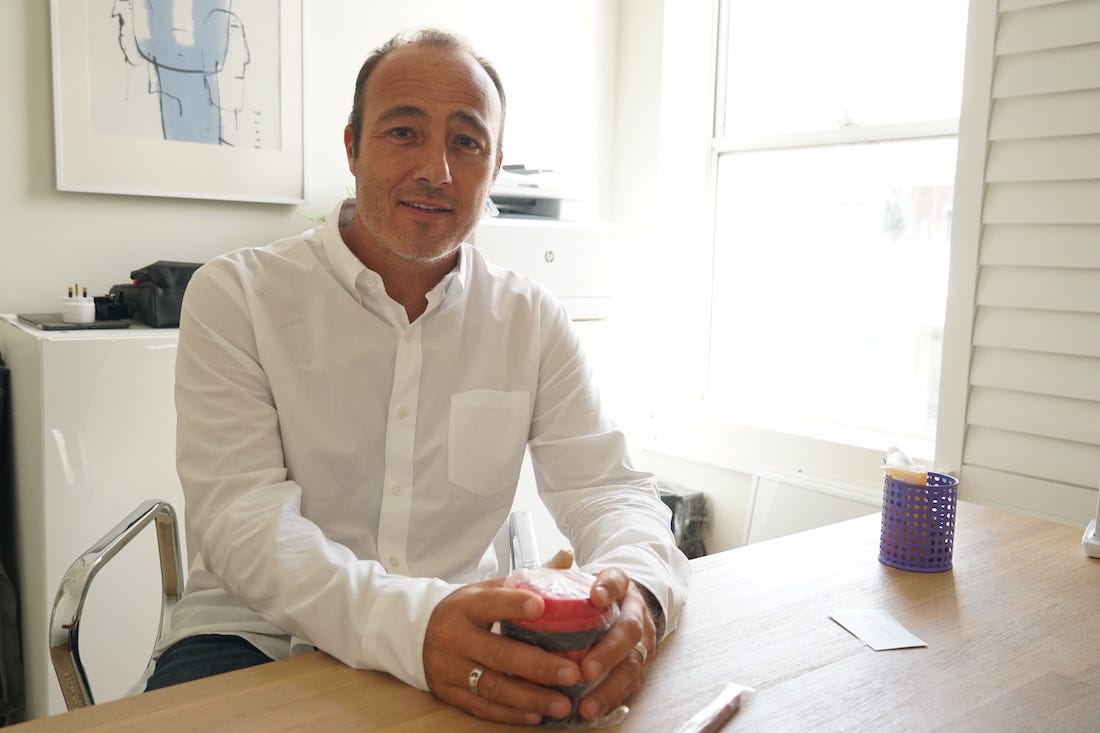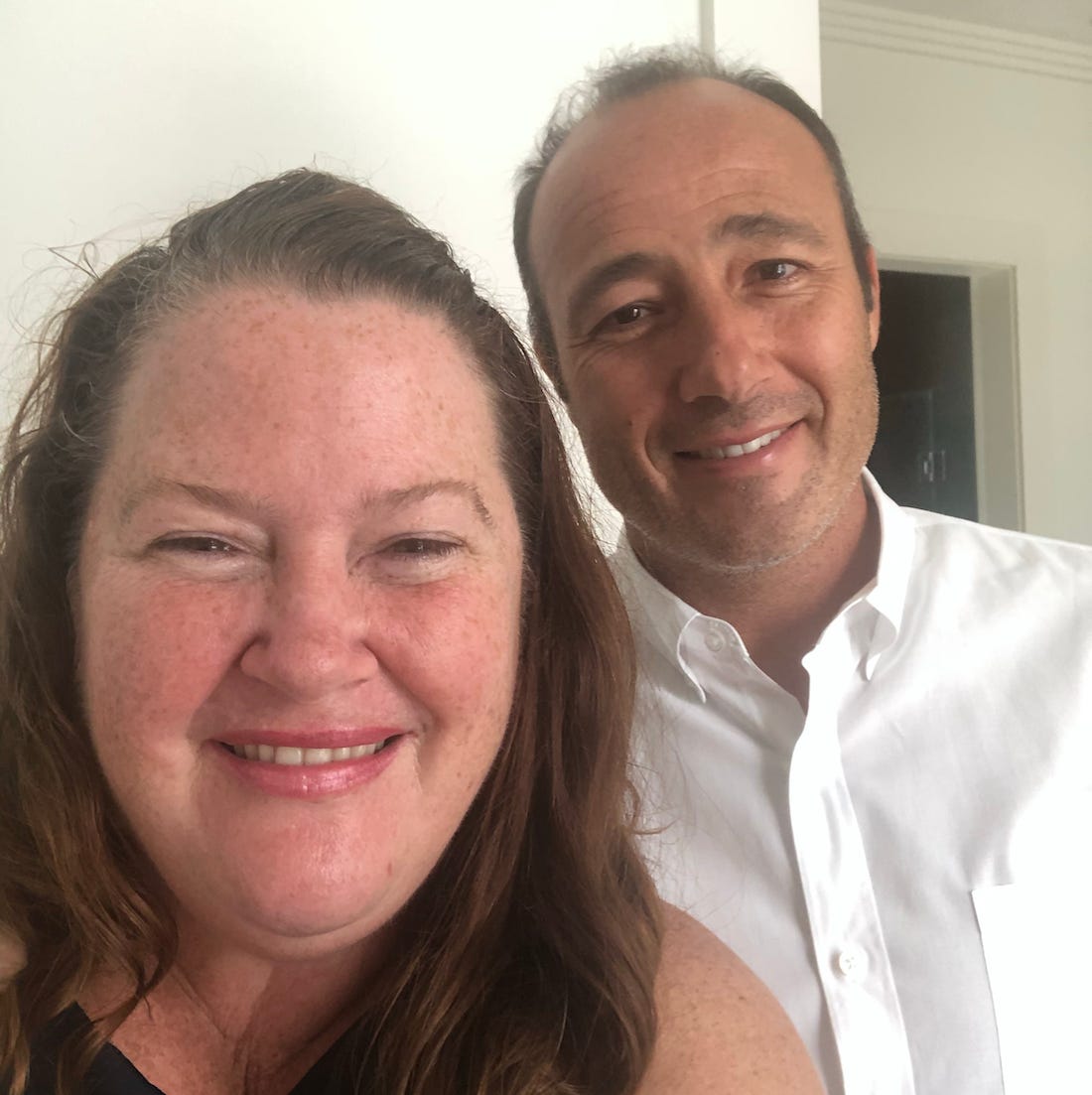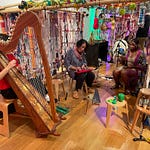What an incredible couple of weeks this has been.
Thank you my Journo Project subscribers, for your support. Without you, I could not keep pushing on during this time. I’ve felt like I’ve been walking through porridge this past week or so as we process the enormity of events around us, and their impact on our lives.
But it’s also a critical juncture for press freedom. Never has it been more important to ensure that the press in Australia is able to give us accurate and verified information, and to question decision makers to justify every civil liberty that is being curtailed. It’s vital that the Fourth Estate is part of this process.
In this era of Coronavirus, it’s more crucial than ever.
In this latest podcast, you will hear from Damien Cave, the Australian bureau chief for the New York Times based in Sydney. His insights into the strengths and weaknesses of Australia’s media are so astute.
You can listen to him by clicking on the play button above, or searching for “Streets of Your Town—The Journo Project” on your podcast provider of choice.
Or you can share the Journo Project Press Freedom Facebook page with your friends as a good starting point too. Are you getting those updates?

Photo: Damien Cave at the New York Times Australian bureau office with his newly acquired Wandering Journo keep cup
Australian Bureau Chief of the New York Times Damien Cave has reported from locations around the globe from Mexico to Baghdad.
He says at times the lack of press freedoms for journalists in Australia make it feel more like an authoritarian regime, and that has greater implications now in the midst of a pandemic.
“It shocked me, but I think it shocked me less, frankly, than it shocked a lot of other people,” Mr Cave tells me on this episode of Streets of Your Town—The Journo Project.
“I’d been writing about Australia as this extremely secretive democracy that lacks transparency in a whole bunch of different ways, and it had really empowered the state to keep information from the public.
“I think as a country, I think its greatest struggle with journalism is this culture of secrecy. I think it’s a huge problem.
“As somebody said to me, ‘Australia’s basically built an authoritarian system, it just doesn’t have an authoritarian in charge’.”
He says he’s hopeful that the public’s trust can be restored in Australian journalism, particularly in this era of Covid-19.
“I think that’s the enormous struggle. I think, again, to my point about trust, how do you explain to people why this is valuable to them?,” he says.
“Sometimes I tell people, ‘Listen, secrecy and transparency is not just about national security or intelligence. It’s about... Maybe there’s a teacher at your school who’s doing something really wrong around your kids, and you’ll never get that information because it’s secret.’ And you know, you have to think about it almost at a really micro level, and understand that it really seeps all the way down.
“I mean, police departments are extremely secretive. If you have an abusive cop, you might never know it. And that cop might be moved around 10, 15 times, before anything happens.”
“And so the trust in the system here, I admire Australians’ trust in Government, it’s much greater than it is in the United States, and I think that there are a bunch of benefits that come from that. But by the same token, if you don’t have openness and transparency, then there’s no accountability. And you need both.”
Mr Cave says in many ways Australia is well placed to fight the spread of the coronavirus, largely because of its strong public health system.
“It’s smaller, it behaved pretty aggressively at the beginning of the pandemic. Calling it a pandemic before anyone else,” he said.
“But by the same token, there’s been some trouble with testing, it’s hard to see people totally giving up their social lives, it’s not quite happening yet. No one really knows how panicked they should be.
“Right now it feels like a country that’s a bit in suspended animation, trying to decide which model it wants to adopt.
“This is a really complicated and tricky story, because people are so hungry for information. At the same time, I think we have to be careful not to sensationalise or create panic, although we’re going to get blamed for that no matter what.
“So I think our job in this case is really just to cover it from 360 degrees, and to inform people in as many different ways as we can, and then they can decide on their own.
“I mean, there was an email that came around this week about the coronavirus that looked really real, that had a bunch of advice that I totally believed, until someone told me two days later that a bunch of the prescriptions in there were false. And so it’s easy to get duped, it happens to all of us.”
Here are some links to some of Damien’s most recent work for you to enjoy his beautiful writing and analysis, taking these definitive Australian and New Zealand stories to the world.
A Lucky Country Says Goodbye to the World’s Longest Boom
He Took a Bullet to Save His Son in Christchurch. Can They Ever Heal?
The End of Australia As We Know It

Behind the Scenes
Thanks to you all, my Wandering Journo tribe, for without you my most recent Griffith Review podcast on Truth and Press Freedom simply could not have happened.
Your sponsorship through this newsletter has enabled me to travel to meet and interview more than two dozen Australian journos about press freedom and their concerns about its erosion in this country.
Hope you enjoyed listening to such an incredible collection of journo talent all in one podcast for Griffith Review! In case you missed that link I sent out last week, here’s the link to their most recent newsletter which has some great reading tips during isolation for you, and also links to my Press Freedom podcast, pulling together many of the amazing names you’ve heard from in the past nine months, such as Sandra Sully, Leigh Sales, Hugh Riminton, and Matthew Condon, and some still to come out in the Journo Project in coming weeks such as Kate McClymont and Gerard Ryle.
What I’m reading
While Coronavirus stories and warnings abound, it takes the genius of Trent Dalton's writing to look beyond what many see, further than the health aspects and to the heart of what this pandemic means individually for all of us.
Dalton’s inimitable style sings throughout this piece, his writing feels personal and goes far and beyond the generic magazine approach.
This article from the last Weekend Australian Magazine will come as some significant comfort to many of his fans so soon after his announcement on twitter that his long awaited follow up to his bestseller “Boy Swallows Universe”; “All Our Shimmering Skies”, has been pushed out from it’s June release to September 2020.
The article feels like somebody telling you a story, as if you’re cuddled up on the couch next to Trent in other parallel universe non-corona times.
The fact it also has a call to action inviting people to share their stories for this ongoing feature, whether it’s loss, whether it’s how you’re getting through, whether it’s remembering someone, again marks it as different and so distinctively Trent, and therefore so worthy of taking the time to read.
For those wanting to hear a bit of Trent’s voice at this time, his twitter feed is full of his repartee, but there is also my Journo Project interview with him, where he speaks fondly of his journalism apprenticeship and how that led him to become the beautiful writer he is today.
So with all the worrying news around at the moment, here’s some good news!
Those who know me know that I started my career in local and regional journalism. My first gig with The Australian Broadcasting Corporation was as the sole journalist in a two room office (one of which was the radio studio!) covering three quarters of the state of SA from the Port Augusta ABC office in outback South Australia. The lack of diversity in Australian media means the regions really rely on the few broadcasters and publications they have. So to hear of the demise of some of Australia’s well loved country newspapers, some of which like in Broken Hill had been going for more than a century, truly worried me, and should concern us all.
But now for the kicker—a couple of publications have turned that trend around!


And also a bit of good news from the philanthropic world of some short term grants to help journos and vital local media through this covid-19 crisis.


And if in doubt that there is any good left in the world, then please let Dolly Parton read you a bedtime story.
Upcoming tease
Exciting times for the rollout of the next three episodes of Streets of Your Town—The Journo Project! With the coronavirus situation changing every day, I’ve decided to roll out my last four Sydney interviews in a cluster over the next week. What better thing to do with all this time we have on our hands now hey—ha!
Coming up next are the amazing journalists Kate McClymont, Nas Campanella and Gerard Ryle.
In this time of isolation and social distancing, I hope you can help make the world a smaller place as part of The Wandering Journo tribe and share this email with your friends. You can send me suggestions or comments too just by hitting reply to this email.
And reach out to me guys—all you have to do is hit reply to this email—and voila! I get your message. Tell me what you’re enjoying about the journos and what more you’d like to hear from them. Suggestions always welcome!
Thanks for making this all possible!
Talk soon! At a distance!
Nance















Share this post